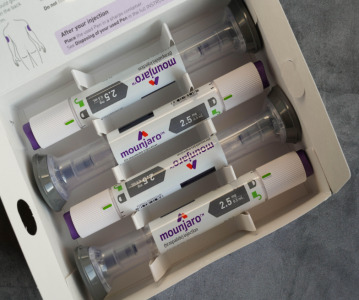FDA grants Genentech’s cancer immunotherapy Tecentriq Accelerated Approval for people with a specific type of advanced bladder cancer

First and only anti-PDL1 cancer immunotherapy approved by the FDA.
Genentech has announced that the FDA granted accelerated approval to Tecentriq (atezolizumab) for the treatment of people with locally advanced or metastatic urothelial carcinoma (mUC) who have disease progression during or following platinum-based chemotherapy, or whose disease has worsened within 12 months of receiving platinum-based chemotherapy before surgery (neoadjuvant) or after surgery (adjuvant). Urothelial carcinoma accounts for 90% of all bladder cancers and can also be found in the renal pelvis, ureter and urethra.
“Tecentriq is a new medicine that can work with the immune system to treat people with a type of bladder cancer that progressed after platinum-based chemotherapy,” said Sandra Horning, chief medical officer and head of Global Product Development. “We thank the scientists, doctors, patients and their families who made it possible to bring Tecentriq to people with advanced urothelial carcinoma.”
"Even though bladder cancer is the fifth most commonly diagnosed cancer in the US, it hasn’t received the same attention within the cancer community as other common cancers,” said Diane Zipursky Quale, president and co-founder, Bladder Cancer Advocacy Network. “Tecentriq is a new medicine for people whose locally advanced or metastatic bladder cancer has progressed on platinum-based chemotherapy and may have limited treatment options.”
The indication for Tecentriq is approved under accelerated approval based on tumour response rate and duration of response. Continued approval for this indication may be contingent upon verification and description of clinical benefit in confirmatory trials. Today’s approval of Tecentriq is based on the Phase II IMvigor 210 study.
Possible serious side effects with Tecentriq include, but are not limited to, lung problems (pneumonitis), liver problems (hepatitis), intestinal problems (colitis), hormone gland problems (especially the pituitary, thyroid, adrenal glands and pancreas), nervous system problems (neuropathy and meningoencephalitis), eye problems, severe infections and severe infusion reactions. Additional information on these and other side effects can be found below.
Tecentriq will be available to people in the US within one to two weeks.
Related News
-
News The next 15 drugs up for negotiation with Medicare include several blockbusters
By now, everyone is quite familiar with the drug price negotiations taking place between drug companies and the Centres for Medicare & Medicaid Services (CMS) in the USA as part of measures being taken to reduce the cost of drugs for patients, to make ... -
News PSCI Welcomes Delpharm, Samsung Biologics, and Suven as First Supplier Partners
The pharmaceutical industry continues to evolve with an increasing focus on responsible sourcing, sustainability, and collaboration across the supply chain. Under a new model to recognise suppliers within the pharmaceutical and healthcare industry that... -
News Drug prices agreed upon as part of the US Inflation Reduction Act
The Inflation Reduction Act brought into constitution by the Biden administation in 2022, which proposed a drug price negotiation between the government and pharmaceutical companies, has reached it's first agreement. -
News Eisai Alzheimer’s drug authorised in UK but still faces obstacles
In partnership with BioArctic AB, pharmaceutical company Eisai has been granted Marketing Authorisation by the Medicines and Healthcare products Regulatory Agency (MHRA) for its Alzheimer’s disease drug product Leqembi. -
News Eli Lilly's weight loss drugs removed from the FDA's shortage list
The US FDA have recently updated their drug shortage list. The recently released list shows that all dosage forms of Eli Lilly's weight-loss drug Zepbound and their diabetes drug Mounjaro are now available. -
News Global advancements in the diagnosis and treatment of rare diseases: Rare Disease Day 2024
Rare Diseases Day is celebrated on the 29th February 2024 and represents the plight of rare disease patients to gain diagnosis and access to suitable treatment. -
News Pharmaceutical industry supports COP28 health stance in joint statement
As COP28 takes place over this week in Dubai, UAE, several bodies in the pharmaceutical and health industries have come together to announce support of key movements in sustainability in the sector, and to recognise sustainability as a health issue.&nb... -
News Biden backs Cold-War measures to shore-up medical supply chains
In a recent strategy to combat rising inflation and the cost of living crisis, President Joe Biden has invoked a Cold War-era act to increase investment in a selection of medicines and supplies.
Recently Visited
Position your company at the heart of the global Pharma industry with a CPHI Online membership
-
Your products and solutions visible to thousands of visitors within the largest Pharma marketplace
-
Generate high-quality, engaged leads for your business, all year round
-
Promote your business as the industry’s thought-leader by hosting your reports, brochures and videos within your profile
-
Your company’s profile boosted at all participating CPHI events
-
An easy-to-use platform with a detailed dashboard showing your leads and performance



.png)



